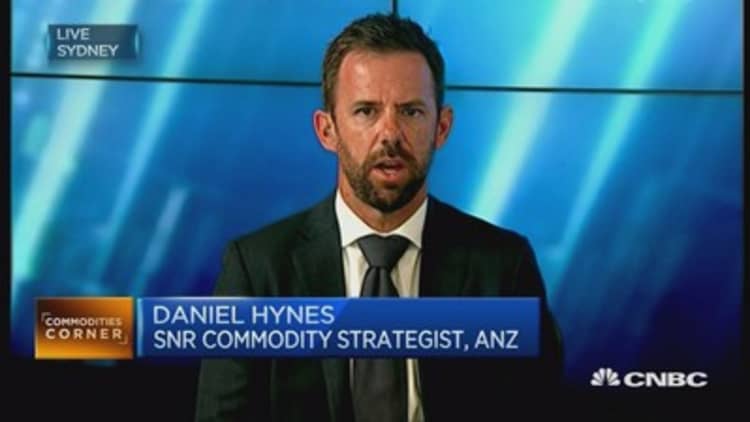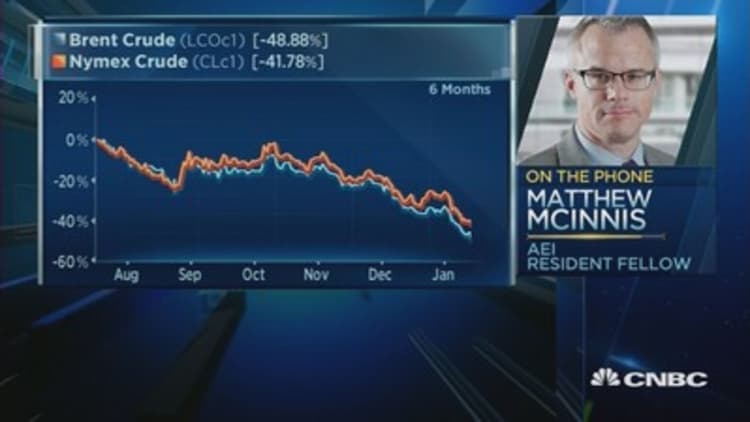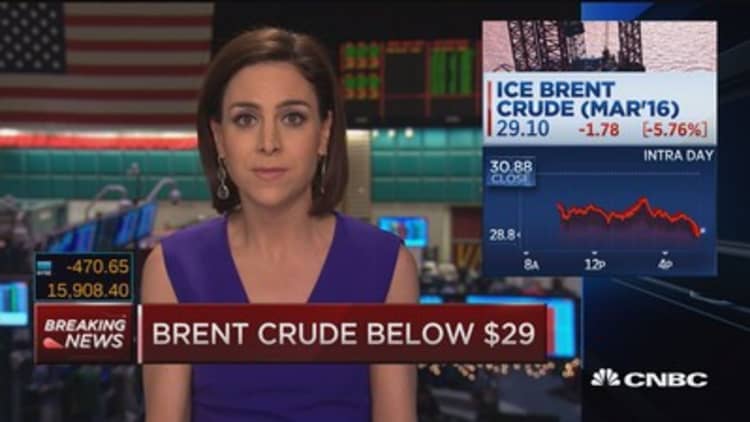



Oil prices were sharply lower in early Asian trade, extending a brutal sell-off fueled by fears of a glut from Iran, after international sanctions against the country were lifted at the weekend.
U.S. WTI light sweet crude oil prices were recently trading 0.45 percent lower at $29.25 a barrel, after falling 3.6 percent to hit the session's low of $28.36 barrel, while European Brent crude was last 0.48 percent lower $28.82 a barrel after falling 4.4 percent to $27.67 a barrel.
Both grades were moving in the range of prices not seen since late 2003 after falling about 6 percent on Friday in the U.S. session.
Iran, which is an OPEC member, is ready to increase its crude oil exports by half a million barrels a day, Reuters reported on Sunday, citing statements from the country's deputy oil minister.
This has caused the market to panic, despite the fact that oil investors had anticipated the return of Iran to oil markets and that development of the oil industry in the country was likely to be a slow process, said American Enterprise Institute's resident fellow, Matthew McInnis.
Luring foreign investors into Iran's oil market would be a particularly lengthy project, McInnis noted.
"Over all, it will certainly affect and depress oil prices in the near-term", he said.
With sentiment ruling fundamentals in the current market, "anything is possible" when it comes prices, said Daniel Hynes, commodities analyst at ANZ.
"In this oversupplied market, fundamentals are taking a backseat so to find a bottom in prices, you'll have to see investor sentiment really stabilize. At they are particularly bearish, keep adding to those short positions...It's just a wave of negativity coming through (with) the lifting of sanctions on Iran being the latest," Hynes told CNBC's Squawk Box.
Even though the supply surplus is reducing, with re-balancing expected in the next 12 months, overall supply-demand fundamentals were still weak so the market was putting downward pressure on prices to spur a readjustment, he added.
Oil prices have been falling since the summer of 2014 due to an energy supply surplus, and are down about 70 percent since then.
But despite the price rout, OPEC has not cut its 30-million-barrel-a-day production quota, as kingpin Saudi Arabia stands by its strategy of maintaining low-cost production in order to squeeze out smaller players with higher costs, such as U.S. shale oil producers.
"You are going to see some oil exporting countries being hurt [by the rout in oil prices]," said Riedel Research Group president and founder David Riedel.
"Longer term, it's quite good for consumers in India and China…but it can be painful for those oil exporting countries," added Riedel.


